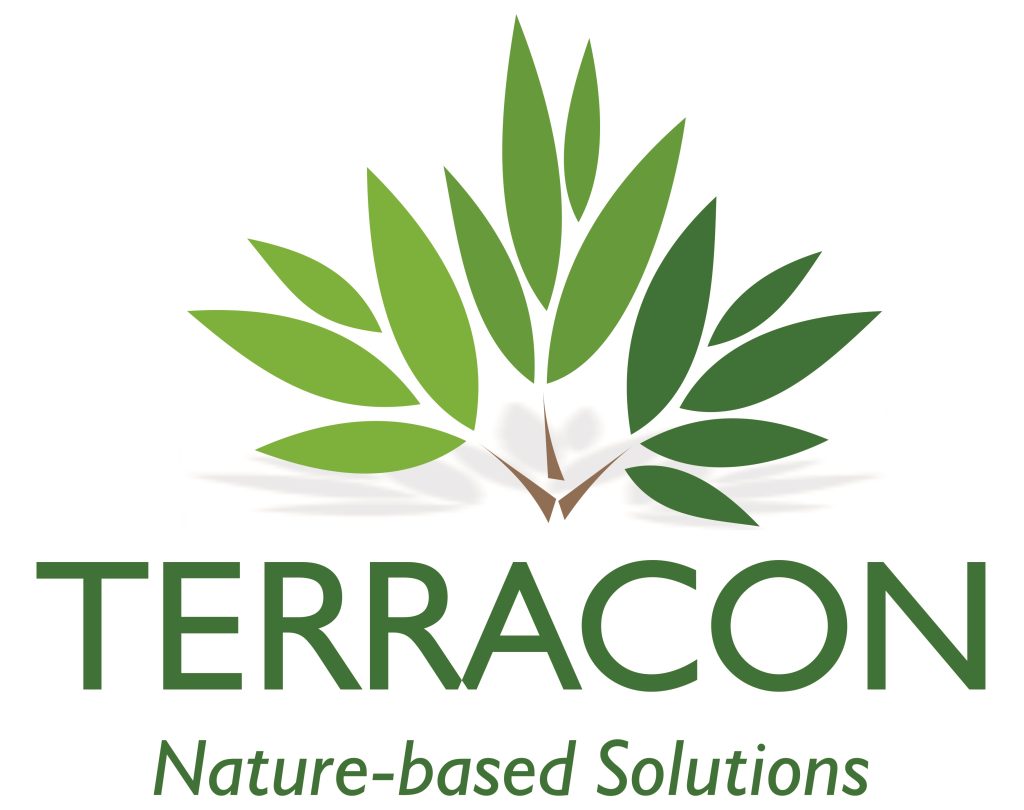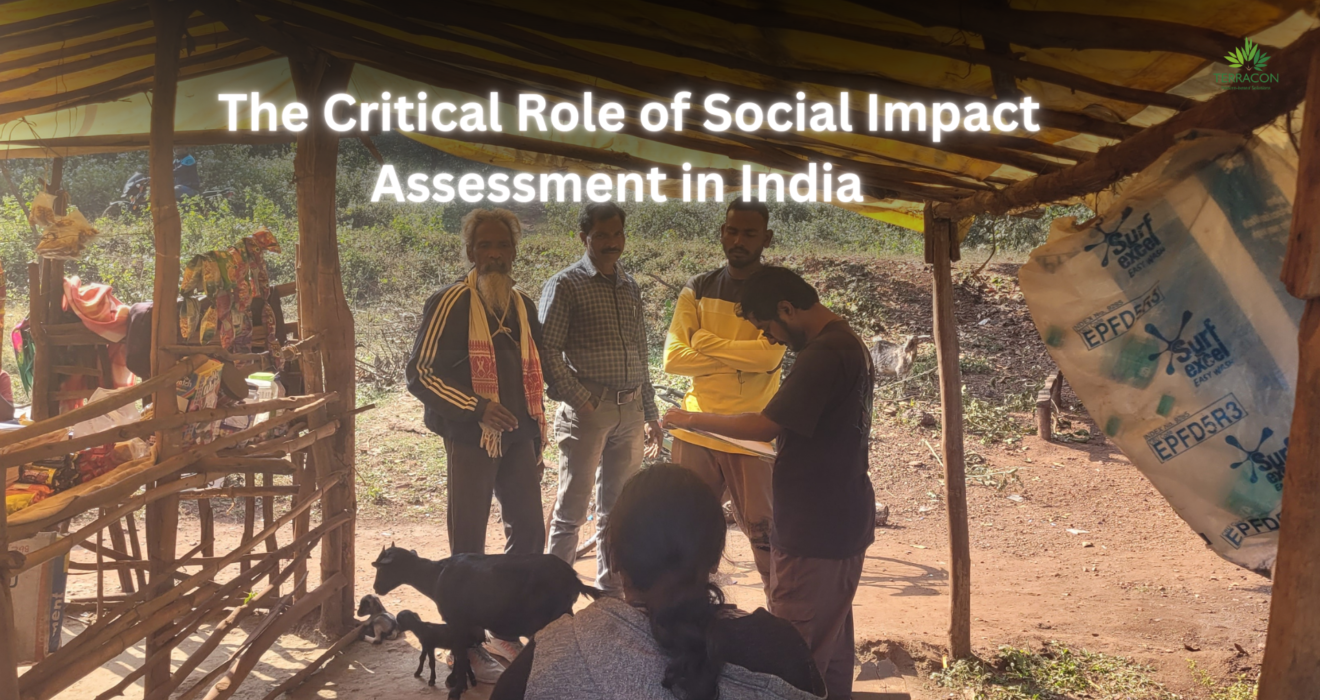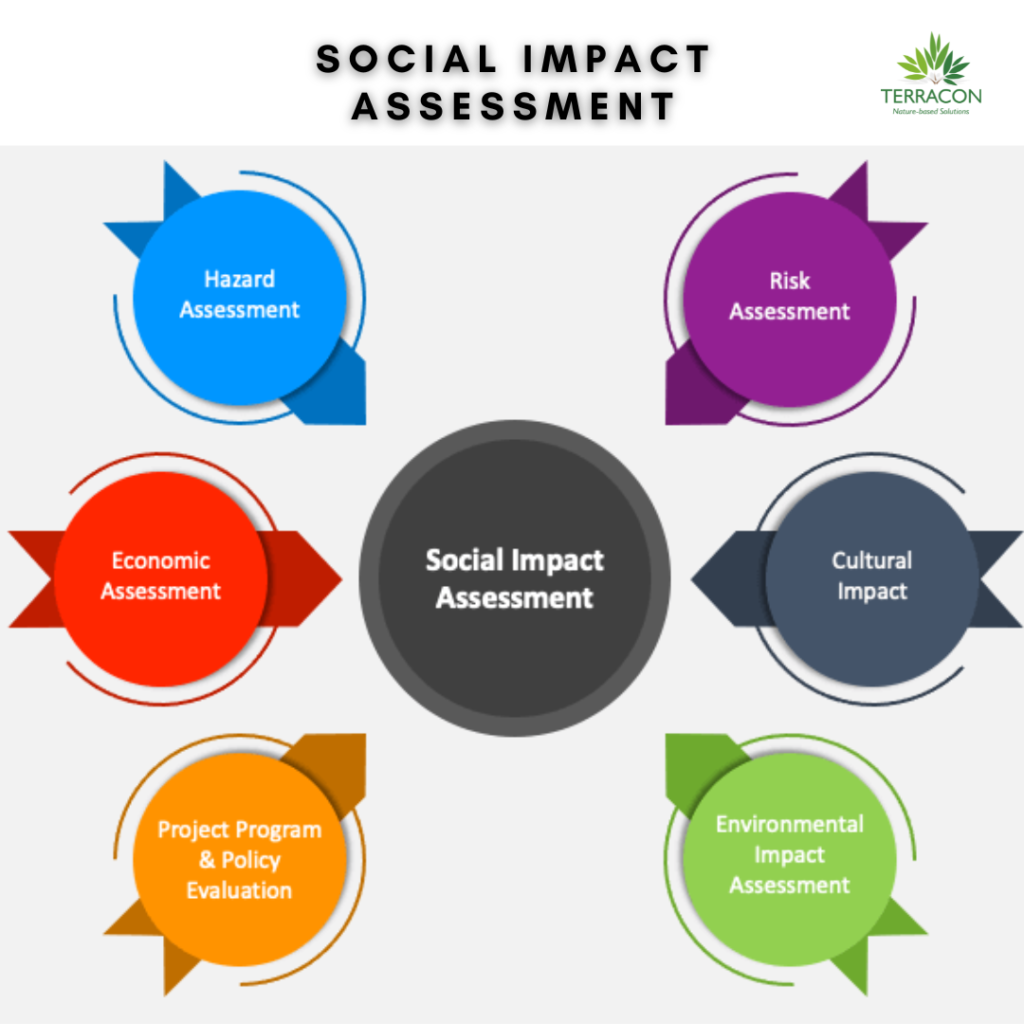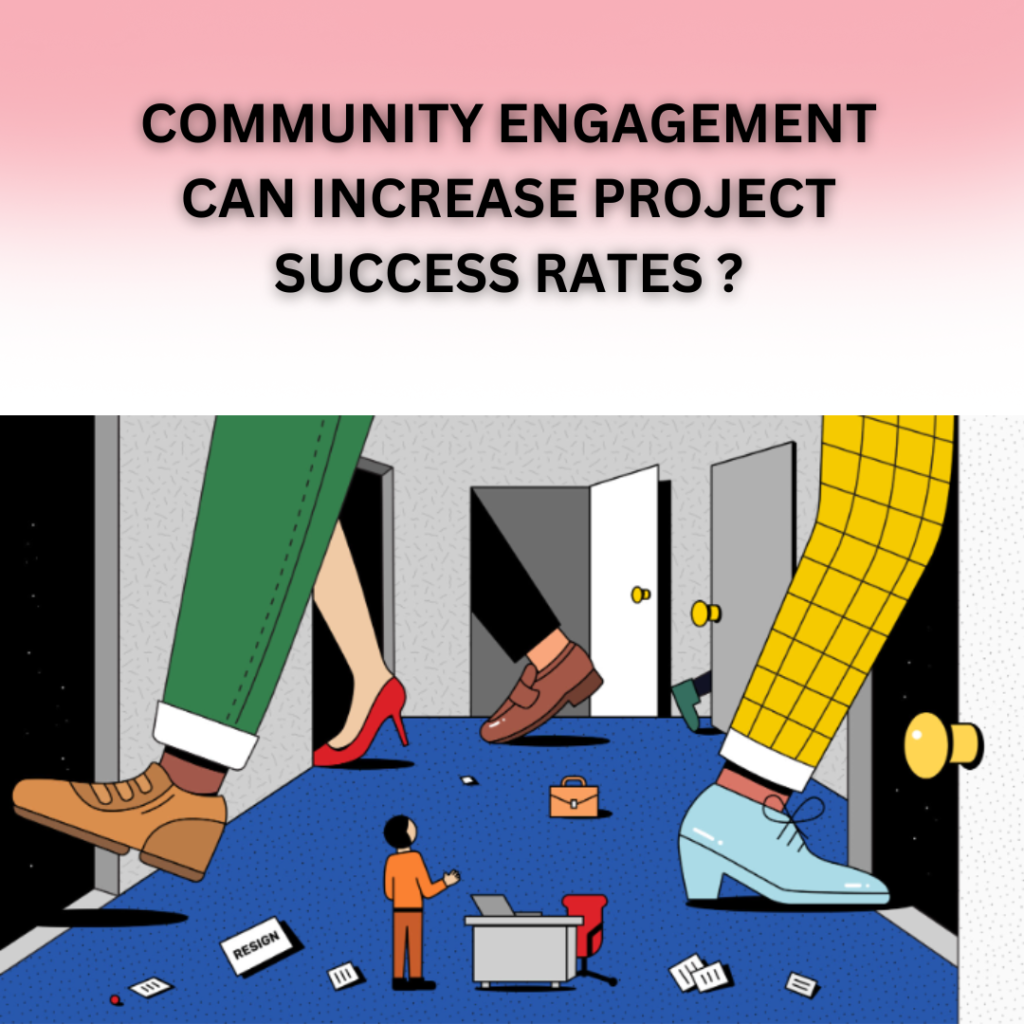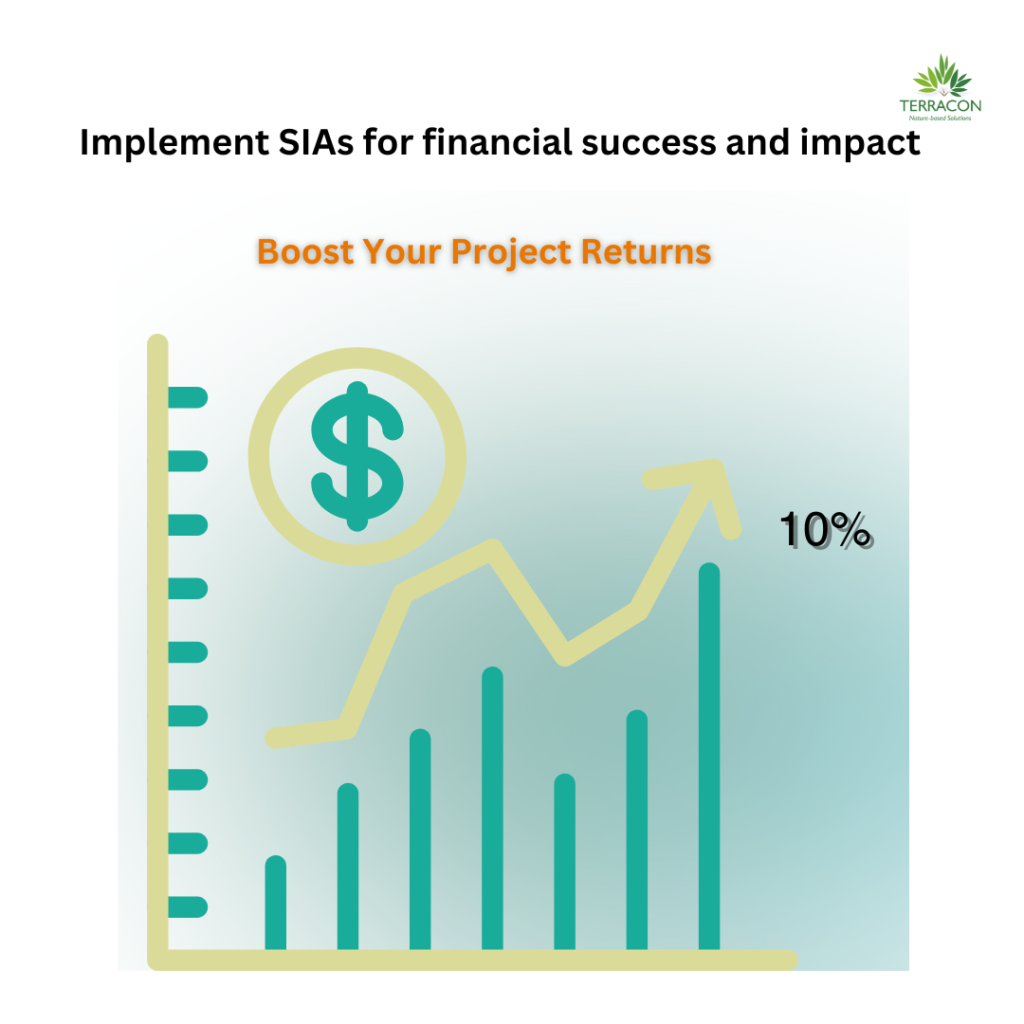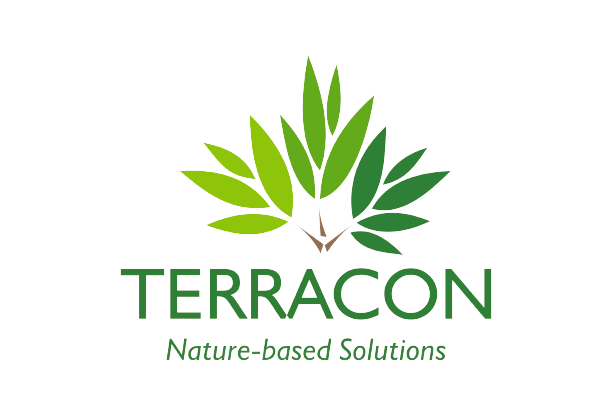India, a country with a population of over 1.3 billion, is witnessing rapid economic growth and development. However, this growth has also led to concerns about the social impacts of development projects on local communities and stakeholders. As the country continues to urbanize and develop its infrastructure, the demand for Social Impact Assessment (SIA) expertise is growing. SIA is a critical tool that can help mitigate these impacts and ensure that projects are socially sustainable.
India plans to invest over $1 trillion in infrastructure development by 2025, highlighting the need for SIA to ensure sustainable development.
With the increasing complexity of projects and the need for sustainable development, it is essential to have professionals who can conduct comprehensive SIAs and develop strategies to mitigate social impacts. Consultancies specializing in SIA play a critical role in promoting sustainable development in India. By providing expert services in SIA, these consultancies help project developers and stakeholders navigate the complexities of social impact assessment and ensure that projects are socially responsible and environmentally sustainable.

The lack of SIA in development projects can have severe consequences. According to a report by the Indian Institute of Technology, Delhi, India’s infrastructure development projects have displaced over 60 million people between 1951 and 2015. This highlights the need for a more sustainable approach to development , one that takes into account the social impacts of projects on local communities. Read the importance of EIA .
Why Social Impact Assessment is Crucial
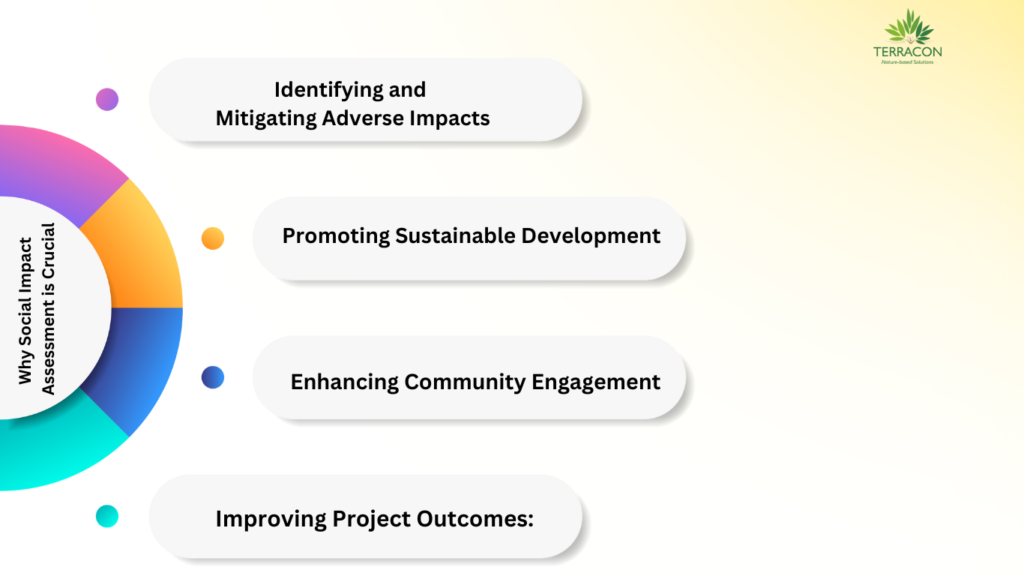
Social Impact Assessment (SIA) is essential for several reasons:
- Identifying and Mitigating Adverse Impacts: SIA helps identify potential social impacts of a project, allowing for proactive measures to mitigate adverse effects on local communities.
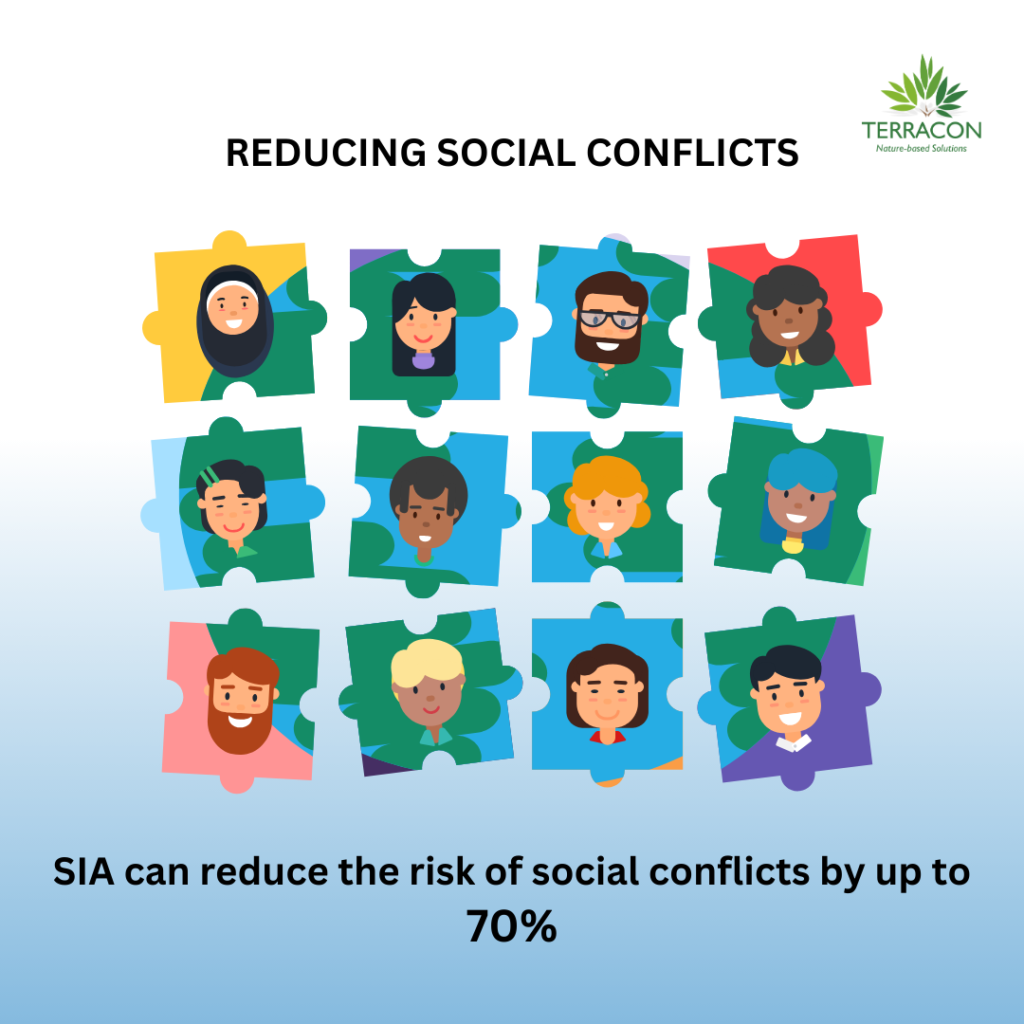
SIA can reduce the risk of social conflicts by up to 70%
- Promoting Sustainable Development: By considering the social implications of a project, SIA ensures that development is sustainable, equitable, and responsible.
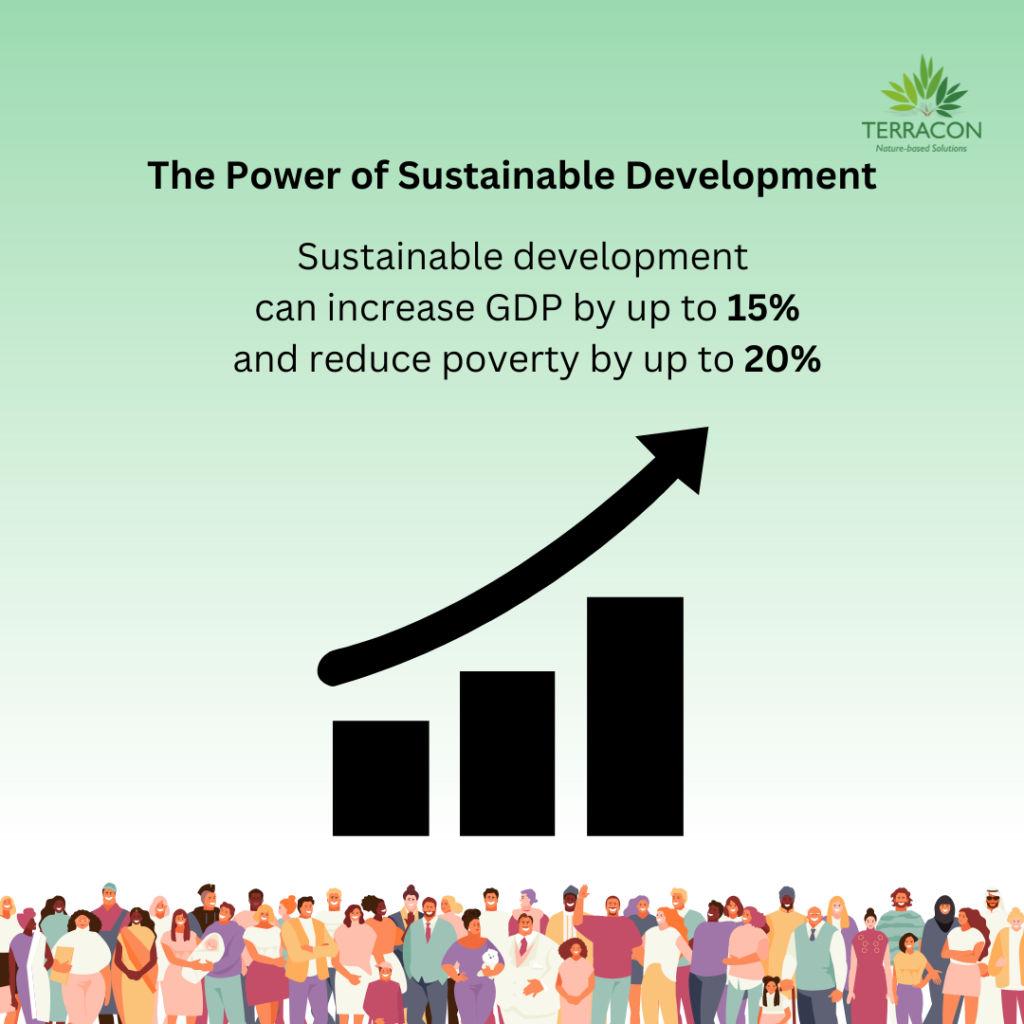
Sustainable development can increase GDP by up to 15% and reduce poverty by up to 20%.
- Enhancing Community Engagement: SIA fosters community engagement and participation, ensuring that the needs and concerns of local stakeholders are addressed. Research by the Harvard Business Review found that community engagement can increase project success rates by up to 30%.
- Improving Project Outcomes: SIA leads to better project outcomes by reducing the risk of social conflicts, improving community acceptance, and enhancing the overall social license to operate.
International Finance Corporation found that SIA can increase project returns by up to 10%.
As a company committed to promoting sustainable development and responsible project management in India, we have worked with numerous clients across various sectors, including infrastructure, mining, and energy. Our team of experts has developed a comprehensive approach to SIA, ensuring that our clients’ projects are not only economically viable but also socially responsible and environmentally sustainable.

Case Study: National Cyclone Risk Mitigation Program (NCRMP)
Our work on the NCRMP project in Thane and Raigad districts of Maharashtra is a testament to the importance of SIA in project development. By conducting a comprehensive SIA, we identified potential social impacts of the project, including displacement of local communities and loss of livelihoods. We worked with the project stakeholders to develop strategies to mitigate these impacts, ensuring that the project was socially sustainable and responsible.
SIA is being increasingly adopted by Indian industries, including mining, energy, and infrastructure, to ensure sustainable development and reduce social and environmental impacts.
Challenges and Opportunities in SIA
Conducting SIA in India can be challenging due to the country’s complex social, cultural, and political context. Access to reliable and accurate data and information can be limited, making it difficult to conduct comprehensive SIA. Language and communication barriers can also hinder effective stakeholder engagement and participation in the SIA process. Furthermore, the regulatory framework for SIA in India can be complex and inconsistent, making it challenging to navigate.

SIA is mandated in various Indian laws and policies, including the Environment Impact Assessment (EIA) Notification, 2006, and the Right to Fair Compensation and Transparency in Land Acquisition, Rehabilitation and Resettlement Act, 2013.
Despite the challenges, the future of SIA in India looks promising. The Indian government’s focus on sustainable development and responsible project management is driving demand for SIA expertise. There is growing awareness of the social impacts of development projects, leading to increased demand for SIA services. Advances in technology, such as data analytics and stakeholder engagement platforms, are also improving the efficiency and effectiveness of SIA. Capacity building and training programs are helping to develop the skills and expertise of SIA professionals in India. Collaboration and partnerships between government, industry, and civil society are essential for promoting sustainable development and responsible project management in India. The demand for SIA professionals in India is growing, with the industry expected to create over 10,000 jobs in the next five years. Emerging sectors such as renewable energy, infrastructure, and urban development are creating new opportunities for SIA professionals in India. Overall, the future of SIA in India is promising, with growing demand for SIA expertise, advancements in technology, and increasing awareness of social impacts driving the industry forward.
Conclusion
In conclusion, SIA is a critical tool for promoting sustainable development and responsible project management in India. As the country continues to grow and develop, it’s essential to adopt a sustainable approach to development that takes into account the social impacts of projects on local communities. With the right expertise and approach, SIA can help mitigate the negative impacts of development projects and ensure that they are socially sustainable and responsible.

Written by
Anjeeta Goud
Team Business Development and Strategy
Terracon Ecotech
Reference :
Social Impact Assessment (SIA) is a crucial methodology for analyzing
SIA should be integrated throughout the project lifecycle, not treated as a one-time assessment
The needs and concerns of local stakeholders are addressed in development projects.
